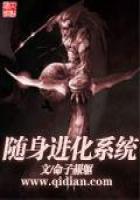The next transformation of the Noblesse was effected by Peter the Great. Peter was by nature and position an autocrat, and could brook no opposition. Having set before himself a great aim, he sought everywhere obedient, intelligent, energetic instruments to carry out his designs. He himself served the State zealously--as a common artisan, when he considered it necessary--and he insisted on all his subjects doing likewise, under pain of merciless punishment. To noble birth and long pedigrees he habitually showed a most democratic, or rather autocratic, indifference. Intent on obtaining the service of living men, he paid no attention to the claims of dead ancestors, and gave to his servants the pay and honour which their services merited, irrespectively of birth or social position. Hence many of his chief coadjutors had no connection with the old Russian families. Count Yaguzhinski, who long held one of the most important posts in the State, was the son of a poor sacristan; Count Devier was a Portuguese by birth, and had been a cabin-boy; Baron Shafirof was a Jew; Hannibal, who died with the rank of Commander in Chief, was a negro who had been bought in Constantinople; and his Serene Highness Prince Menshikof had begun life, it was said, as a baker's apprentice! For the future, noble birth was to count for nothing. The service of the State was thrown open to men of all ranks, and personal merit was to be the only claim to promotion.
This must have seemed to the Conservatives of the time a most revolutionary and reprehensible proceeding, but it did not satisfy the reforming tendencies of the great autocrat. He went a step further, and entirely changed the legal status of the Noblesse.
Down to his time the nobles were free to serve or not as they chose, and those who chose to serve enjoyed land on what we should call a feudal tenure. Some served permanently in the military or civil administration, but by far the greater number lived on their estates, and entered the active service merely when the militia was called out in view of war. This system was completely changed when Peter created a large standing army and a great centralised bureaucracy. By one of those "fell swoops" which periodically occur in Russian history, he changed the feudal into freehold tenures, and laid down the principle that all nobles, whatever their landed possessions might be, should serve the State in the army, the fleet, or the civil administration, from boyhood to old age. In accordance with this principle, any noble who refused to serve was not only deprived of his estate, as in the old times, but was declared to be a traitor and might be condemned to capital punishment.
The nobles were thus transformed into servants of the State, and the State in the time of Peter was a hard taskmaster. They complained bitterly, and with reason, that they had been deprived of their ancient rights, and were compelled to accept quietly and uncomplainingly whatever burdens their master chose to place upon them. "Though our country," they said, "is in no danger of invasion, no sooner is peace concluded than plans are laid for a new war, which has generally no other foundation than the ambition of the Sovereign, or perhaps merely the ambition of one of his Ministers. To please him our peasants are utterly exhausted, and we ourselves are forced to leave our homes and families, not as formerly for a single campaign, but for long years. We are compelled to contract debts and to entrust our estates to thieving overseers, who commonly reduce them to such a condition that when we are allowed to retire from the service, in consequence of old age or illness, we cannot to the end of our lives retrieve our prosperity. In a word, we are so exhausted and ruined by the keeping up of a standing army, and by the consequences flowing therefrom, that the most cruel enemy, though he should devastate the whole Empire, could not cause us one-half of the injury."*
These complaints have been preserved by Vockerodt, a Prussian diplomatic agent of the time.
This Spartan regime, which ruthlessly sacrificed private interests to considerations of State policy, could not long be maintained in its pristine severity. It undermined its own foundations by demanding too much. Draconian laws threatening confiscation and capital punishment were of little avail. Nobles became monks, inscribed themselves as merchants, or engaged themselves as domestic servants, in order to escape their obligations. "Some,"
says a contemporary, "grow old in disobedience and have never once appeared in active service. . . . There is, for instance, Theodore Mokeyef. . . . In spite of the strict orders sent regarding him no one could ever catch him. Some of those sent to take him he belaboured with blows, and when he could not beat the messengers, he pretended to be dangerously ill, or feigned idiocy, and, running into the pond, stood in the water up to his neck; but as soon as the messengers were out of sight he returned home and roared like a lion." *
Pososhkof, "O skudosti i bogatstve."
After Peter's death the system was gradually relaxed, but the Noblesse could not be satisfied by partial concessions. Russia had in the meantime moved, as it were, out of Asia into Europe, and had become one of the great European Powers. The upper classes had been gradually learning something of the fashions, the literature, the institutions, and the moral conceptions of Western Europe, and the nobles naturally compared the class to which they belonged with the aristocracies of Germany and France. For those who were influenced by the new foreign ideas the comparison was humiliating.















